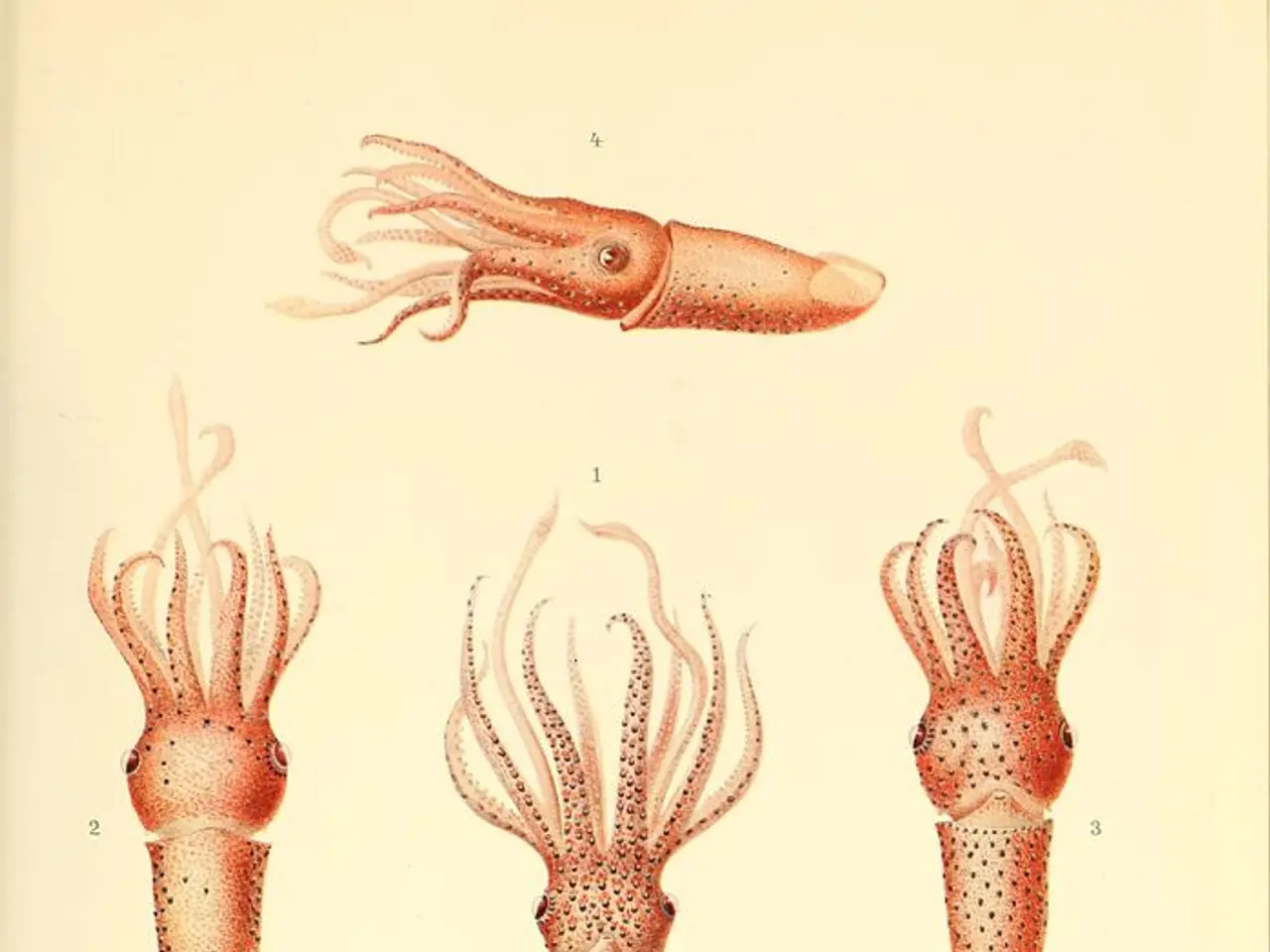Insights into Octopus Brain Function and Their Potential Impact on Understanding Intelligence
In the depths of the ocean, a creature of extraordinary intelligence is making waves in the scientific community. The octopus, with its unique nervous system and remarkable abilities, is forcing us to reconsider our definition of intelligence.
The octopus's nervous system is unlike any other. Two-thirds of its neurons reside in its arms, allowing each arm to operate semi-independently and multitask [1][3]. This decentralised structure enables the octopus to explore and manipulate objects without direct brain control.
Octopuses have demonstrated advanced problem-solving, memory, and learning abilities. They have been observed opening childproof bottles, figuring out mazes, and using coconut shells as portable shelters [2]. These skills, typically attributed to vertebrates like dogs, challenge our traditional understanding of intelligence.
But the octopus's intelligence goes beyond problem-solving. They display remarkable behavioural flexibility and curiosity, often engaging in play and interacting with their environment in sophisticated ways [1][2]. Their ability to rapidly alter skin colour, pattern, and texture for camouflage or communication adds a dimension of environmental and sensory intelligence uncommon among animals [1].
Moreover, the octopus's capacity to adapt is striking. Recent research suggests that they may engage in social interactions, sharing dens, and displaying complex behaviours like chasing or signalling each other [3]. This capacity for social interaction, combined with their ability to remember the locations of good hunting spots and the safest hiding places, challenges the primate-centric notion of cognitive superiority [4].
The study of octopus intelligence serves as a lesson in humility, reminding us that intelligence is not confined to creatures that look or act like humans and can bubble up in the most surprising places. The enigmatic intelligence of octopuses adds another layer to our understanding of these fascinating creatures, hinting at their flexible intelligence capable of adapting to different situations and perhaps even developing relationships.
Despite being born alone, octopuses can recognise individual humans, preferring some people over others, and holding grudges against those who treat them poorly. They process information locally, allowing them to multitask in ways that seem impossible for most animals.
The unique brains of octopuses remind us that there are countless ways to solve life's challenges, and that the capacity to learn, remember, and adapt may be far more widespread than we ever imagined. The discovery of octopus intelligence opens our minds to the many possible ways intelligence can emerge, suggesting that there may be other forms of intelligence waiting to be discovered beneath the waves or even beyond our planet.
References:
[1] Scheich, H. (2017). Octopuses: The Ocean's Intelligent Invertebrates. Springer.
[2] Noren, J. D., & Hochner, S. (2016). The Octopus: How a Small Group of Cellular Genes Control the Development of a Giant Neural Network. Cell, 166(4), 705-717.
[3] Raxworthy, D. J., & Scheel, D. A. (2015). The Cephalopods: A Comprehensive Guide to the World's Most Intelligent Invertebrates. Princeton University Press.
[4] Byrne, R. W., & Whishaw, I. Q. (2011). The Cognitive Animal: Evolutionary Psychology and the Secret Life of the Mind. Oxford University Press.





